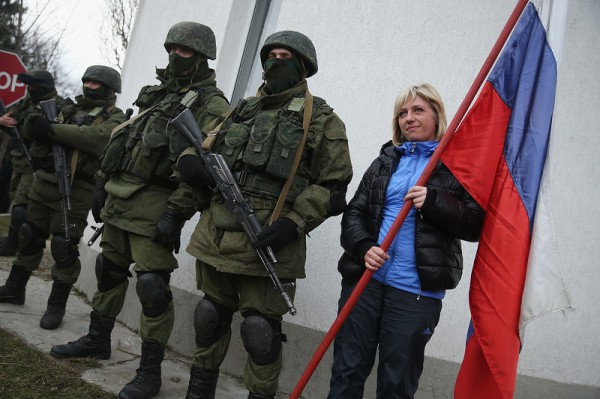On 18-20 May 1944, the Crimean Tatar population of Crimea was deported on Moscow's orders. This forcible eviction of the Crimean Tatars, which the Soviet authorities accused of collaborating with the Germans, was one of the rapid deportations in world history. Recognized by Ukraine as a genocide, it took the lives of 46.2% of the total Crimean Tatar population.
5 social videos prepared by Ukraine's Information Ministry as part of the "I survived genocide" campaign tell about the memories of the survivors of the forceful eviction of 18 March 1944. They visit the houses that their families once lived in.
The names and last names of the people featured in the videos is concealed for safety reasons. There is no guarantee that they will not be retaliated with repressions (searches of houses and persecution), which the occupation authorities engage in against the Crimean Tatars, as they all live in occupied Crimea. The local population helped gather these testimonies.
According to Emine Dzhaparova, First Deputy Minister of the Information Ministry of Ukraine, the actions of the self-proclaimed Russian authorities against the Crimean Tatars in Crimea today continue the policy of genocide.
"The Crimean Tatars have 3 black dates in their history: the date of the first annexation [by the Russian Empire] of 1783, when one-third of the Crimean Tatar population of Crimea left, fleeing from repression; the deportation of 1944, which cut our population in half and deprived us of our homeland; the annexation of 2014, which is also a continuation of the policy of genocide only in hybrid form," said Dzhaparova.
The videos will be broadcast on Ukrainian TV channels; a photo exhibition as well will be held in various locations. We invite our readers to share the experiences of the survivors of the deportation.
The deportation began at dawn on 18 May 1944 and ended on May 20. More than 32,000 NKVD soldiers were recruited for the operation. It is one of most rapid deportations in world history. The Crimean Tatars were given only 30 minutes to gather the most necessary things. They even didn’t have a possibility to bid farewell to their homeland which most of them never saw again.
[youtube https://www.youtube.com/watch?v=2tV8NAkv0xQ]
238,500 people were deported from Crimea, 86.4% of whom were women and children.
[youtube https://www.youtube.com/watch?v=Uw18s_08a90]
NKVD employees came into Crimean Tatar homes and announced to the owners that because of alleged treason they were to be evicted from Crimea.
[youtube https://www.youtube.com/watch?v=_lFlx6CV_lI]
8,000 people died during the journey, most of whom were children and elderly people. The most common causes of death were thirst and typhus.
[youtube https://www.youtube.com/watch?v=BiBDmZW9pKM]
Local authorities in the destination areas were not properly informed and did not receive enough resources to accommodate the deportees. The lack of accommodation and food, the failure to adapt to new climatic conditions and the rapid spread of diseases resulted in the death of 46.2% of the total population.
[youtube https://www.youtube.com/watch?v=O8KgnumLilE]
Related:
- Deportation, genocide, and Russia’s war against Crimean Tatars
- Crimean Tatars no longer alone in remembering Stalin's crimes against their nation
- Deportation, autonomy, and occupation in the story of one Crimean Tatar
- Top-6 Soviet World War II myths used by Russia today
- Ukrainian parliament declares 1944 Soviet deportation of Crimean Tatars an act of genocide
- 7 myths driving Russia’s assault against the Crimean Tatars
- Why the Kremlin fears the Mejlis of the Crimean Tatars
- Anniversary of mass deportation of population from western Ukraine to Siberia
- Stalin’s Caucasus crimes Putin wants you to forget
- Putin’s twisted imperial logic: The (many) historical claims on Russian lands
- Crimea and the Crimean Tatars: Centuries of competing claims and forgotten history














